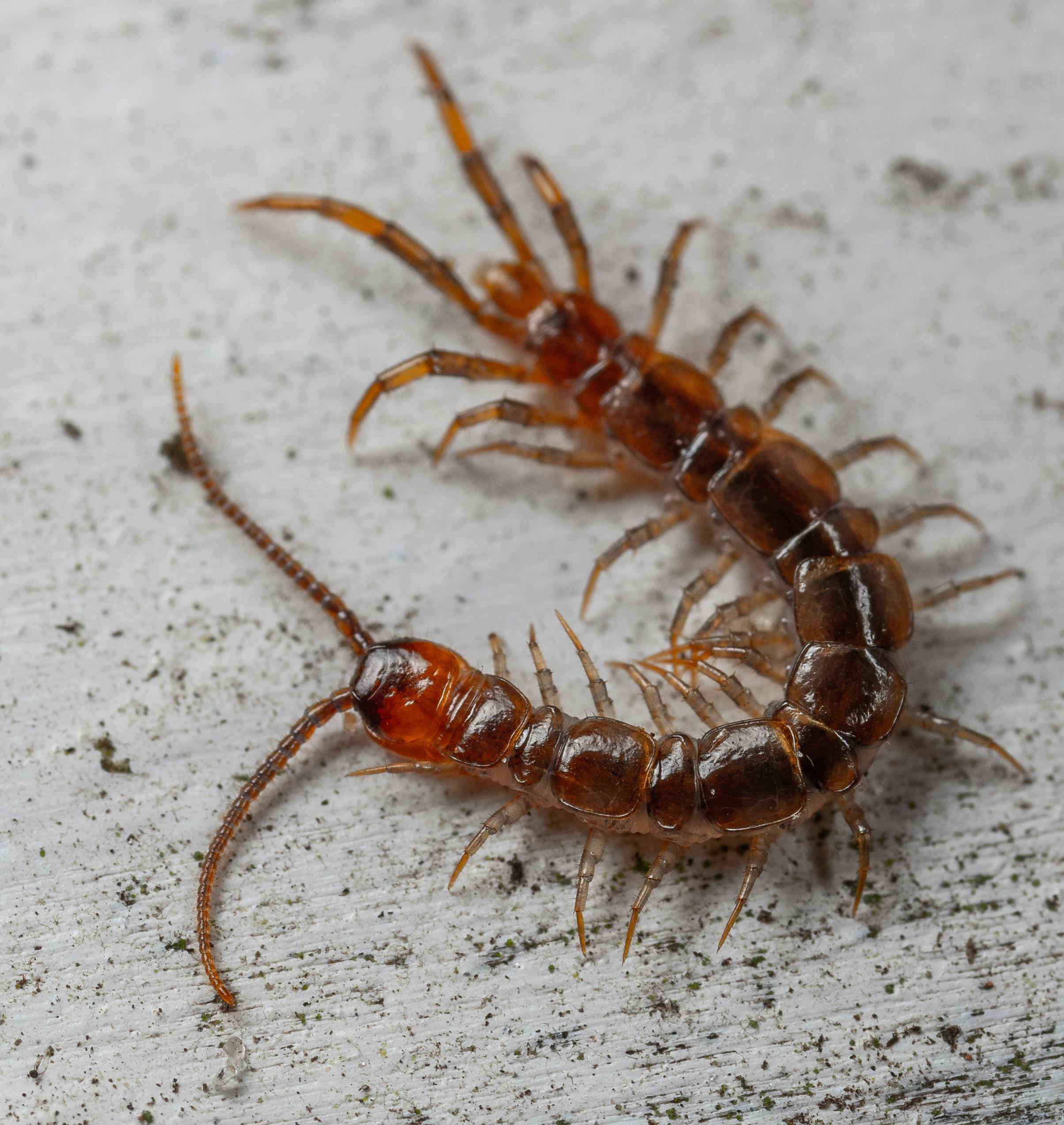Ever come across a centipede and wondered about the punch their bite might pack? You’re not alone. For many homeowners, these multi-legged creatures can be quite unsettling. But understanding what’s really behind their bite is key to your safety and peace of mind. Let’s dive into the world of centipede bites, clear up the confusion between poison and venom, and explore their effects and treatments. By the time we’re done, you’ll be well-equipped to handle these creepy crawlies and know when it’s time to call in the pros.
Are Centipedes Poisonous?
Let’s tackle the big question right off the bat: are centipedes poisonous? Well, not exactly. Here’s where things get interesting – there’s a crucial difference between “poisonous” and “venomous.” Poisonous critters deliver toxins when you touch or eat them, while venomous ones inject toxins through a bite or sting. Centipedes fall into the venomous camp.
Centipede venom is composed of various enzymes and toxins, primarily designed to take down their prey – insects and small animals. While this venom can affect humans, it’s usually not life-threatening. Think of it more as a defensive tool than a lethal weapon.
Effects of a Centipede Bite
So, what happens if you do get nipped by a centipede? Typically, you’ll experience localized pain, redness, and swelling. Some folks might also feel itching or a burning sensation. It’s not pleasant, but it’s usually manageable.
The severity of a bite can vary, though. It depends on factors like the size of the centipede (bigger ones pack more of a punch) and how your body reacts to the venom. For instance, the giant desert centipede tends to cause more significant reactions. And if you have allergies or sensitivities, you might experience more intense symptoms.
First Aid and Treatment
If you find yourself on the receiving end of a centipede bite, don’t panic. Here’s what you should do:
- Clean the bite area thoroughly with soap and water to ward off infection.
- Apply a cold compress to bring down swelling and ease the pain.
- If needed, take some over-the-counter pain relievers to manage discomfort.
- Keep an eye on the bite area for any signs of infection, like increasing redness, swelling, or pus.
While most bites don’t require medical attention, there are exceptions. If you experience severe symptoms like difficulty breathing, chest pain, or signs of an allergic reaction, it’s time to seek medical help pronto.
Professional Help
Prevention is always better than cure when it comes to centipede bites. If you’re dealing with a significant infestation, it’s time to call in the experts. Pest Control Consultants – PCC offers specialized services to tackle and prevent centipede problems, helping keep your home bite-free.
Conclusion
To wrap things up, centipedes are venomous, not poisonous. Their bites can cause a range of symptoms, from mild discomfort to more severe reactions, depending on various factors. Knowing how to administer proper first aid and when to seek medical help is crucial in managing centipede bites.
Stay informed and take proactive steps in pest control to keep your home safe. For professional pest management services, reach out to Pest Control Consultants – PCC.
Don’t let pests take over your space – contact us today and let our experts take care of your pest control needs.
